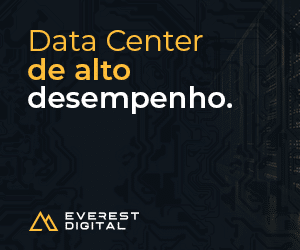On October 21st, it is celebrated worldwide the Global Encryption Day. A date to highlight the importance of strong encryption in protecting online privacy and security. The Global Encryption Coalition leads this global initiative, raising awareness about the crucial role of encryption in safeguarding data and communications in the digital world.
Crypto ID, as the Brazilian representative of the coalition, joins this celebration, promoting the importance of strong encryption as a pillar of digital security. In this context, the following article, written by Reinado Borges – Chief Technology Officer (CTO) Soluti Digital | Cybersecurity, Innovation – exclusively for Crypto ID, explores the vital role of cryptography in modern business operations, demonstrating how this essential technology ensures the protection of confidential data and secure communications in an increasingly digital landscape.
Por Reinaldo Borges

Safeguarding sensitive data and securing communications has become fundamental as businesses expand their digital footprint.
Cryptography, once primarily the domain of military and governmental agencies, is now a cornerstone of digital security for modern companies.
From protecting customer data to enabling secure communication, cryptography plays a critical role in keeping corporate networks and operations secure.
Cryptography, the practice of securing information by converting it into unreadable formats, has evolved significantly from its origins. At its core, cryptography ensures confidentiality, meaning only authorized parties can access sensitive information while keeping it safe from malicious actors. It also provides integrity, avoiding unauthorized information modification, and authenticity to guarantee the message’s origin.
When allied with identification processes, cryptography can provide non-repudiation for messages and transactions through digital certificates (the X.509 protocol[1]), a treat highly desired in the legal field. It helps our daily internet navigation and makes online shopping more secure when used to identify the company running the website securely.
There are two basic methods of cryptography. First, symmetric cryptography uses the same key for both encryption and decryption. While faster, it presents challenges in secure key distribution. Second, asymmetric cryptography, also known as public-key cryptography, uses two keys—one public for encryption/verification and one private for decryption/signature—to provide greater security for transmitting data. Modern systems combine both methods for better security and performance, like the TLS in the HTTPS protocol.
Key Concepts
- Encryption/Decryption: The process of converting data into an unreadable format to then restore it to its original form. This process uses mathematical computations with one or more cryptography keys.
- Hash Functions: Functions that convert data into a fixed-size string of characters, typically used for verifying data integrity.
- Digital Signatures: A cryptographic method used to verify the integrity and authenticity of digital documents, ensuring who sent them and that the content hasn’t been tampered with. Digital signatures are usually made over the document’s hash rather than the whole message for better performance.
Effective cryptographic systems depend heavily on secure key management practices. Poor key management can result in compromised security, regardless of the strength of the encryption algorithm. Regular key rotation and secure storage mechanisms are vital to the system’s reliability.
Understanding key custody, controlled access, and revocation becomes essential to preserving business continuity, protecting intellectual property, and maintaining trust.
One of cryptography’s primary functions in business is encrypting sensitive data, such as customer information, financial records, and proprietary trade secrets. Encrypted data ensures that even if cybercriminals gain unauthorized access, the data remains unreadable and unusable as long as the cryptographic keys are kept safe.Businesses rely heavily on secure communication channels to transmit confidential information. Cryptography underpins technologies like:
- Email Encryption: Ensures that only the intended recipient can read the email contents.
- Encrypted Messaging Platforms: Tools like Signal, WhatsApp, and Telegram, among many others, protect communications.
- Virtual Private Networks (VPNs): VPNs encrypt internet traffic, safeguarding sensitive business data when using remote networks.
- Internet Navigation: Research shows that over 85%[2] of websites utilize HTTPS as the default protocol, an encrypted protocol for data transfer, and over 90%[3] of all Google Chrome navigation is over HTTPS.
Cryptographic techniques also play a pivotal role in user authentication and authorization. Systems like multi-factor authentication (MFA) and single sign-on (SSO) leverage cryptography to ensure that only authorized users can access sensitive systems. Encryption also protects the authentication data during transmission. Cryptographic algorithms are the backbone of blockchain technologies. Businesses in finance, supply chain, and even legal sectors increasingly use blockchain to securely verify transactions and enforce agreements. Smart contracts automate contractual processes and rely on cryptography to ensure security and immutability. The list goes on.
It is so vital that cryptography is required by numerous regulations designed to protect customer privacy and data security.
Laws like the General Data Protection Regulation (GDPR)[4] in Europe, the Health Insurance Portability and Accountability Act (HIPAA)[5] in the U.S., and the California Consumer Privacy Act (CCPA)[6] mandate stringent data protection measures. Encrypting customer and patient data helps businesses meet these regulatory requirements and avoid fines.
There are also industry standards regarding the use of cryptography, methods, and key processing, such as:
- NIST (National Institute of Standards and Technology): NIST provides critical guidelines and recommendations for encryption, such as the Advanced Encryption Standard (AES), one of the most widely used encryption algorithms.
- ISO/IEC 27001: A standard for information security management systems emphasizing cryptographic practices to secure sensitive data.
- PCI DSS (Payment Card Industry Data Security Standard): Requires strong encryption and cryptographic practices for businesses that handle credit card transactions.
- WebTrust and CAB/Forum: standards, identification processes, audit criteria for website digital certificates, email protection, and software signature.
While cryptography is vital for business security, it is not immune to vulnerabilities. Businesses must stay vigilant against potential weaknesses in their cryptographic systems. Companies must apply industry standards and best practices, like key protection and rotation, to avoid security breaches.
Over time, encryption algorithms become outdated, and what was once secure may no longer offer protection. Regularly updating cryptographic methods and transitioning to more robust algorithms and keys are equally critical for mitigating risks.
Numerous high-profile data breaches have occurred due to weak or outdated encryption practices. For example, in 2013, the massive breach at Target exposed the credit card details of over 40 million customers, partly due to weaknesses in the company’s encryption practices. According to the U.S. Senate Committee on Commerce, Science and Transportation report[7], there was no encryption to protect the transmission of credit card information.
Emerging technologies and new security challenges shape the future of cryptography. Businesses must stay ahead of these developments to maintain their security posture. With the advent of quantum computing, many of today’s cryptographic systems will become vulnerable. Research is underway into quantum-resistant cryptographic algorithms designed to withstand the capabilities of quantum computers[8].
Another research topic that is getting attention is zero-knowledge proof protocols. These cryptographic protocols allow one party to prove to another that a statement is true without revealing any information about the statement itself. They are increasingly used in privacy-preserving applications like identity verification and secure voting systems.
Cryptography is an indispensable tool for modern businesses, providing the foundation for secure data storage, communication, and user authentication. As enterprises face growing cybersecurity threats, corporate administrators and technical teams must prioritize implementing robust cryptographic measures. Staying informed about cryptographic advances, ensuring compliance with regulatory standards, and preparing for future developments like quantum computing will be critical in maintaining the security of business operations.
Investing in cryptography is not just about protecting data—it’s about securing the future of the business in an increasingly interconnected and vulnerable digital world.
[1] https://datatracker.ietf.org/doc/html/rfc5280
[2] https://w3techs.com/technologies/details/ce-httpsdefault
[3] https://transparencyreport.google.com/https/overview
[4] https://gdpr-info.eu/
[5] https://www.hhs.gov/hipaa/index.html
[6] https://oag.ca.gov/privacy/ccpa
[7] https://www.commerce.senate.gov/services/files/24d3c229-4f2f-405d-b8db-a3a67f183883
[8] https://csrc.nist.gov/projects/post-quantum-cryptography
About Reinaldo Borges, Chief Technology Officer (CTO) Soluti Digital | Cybersecurity, Innovation
As the Chief Technology Innovation Officer (CTIO) at Soluti Digital, I lead the development and implementation of cutting-edge solutions for digital certification, identity verification, and data protection. With over 15 years of experience in IT systems administration, distributed and web systems development, security planning and management, risk analysis, business continuity, and critical IT operations, I have a strong background and vision for creating secure, reliable, and user-friendly products and services.
I am also a Master of Science (MS) student in Cybersecurity at Georgia Institute of Technology, where I am expanding my knowledge and skills in the latest technologies and best practices for safeguarding cyberspace. I have completed professional programs in Agile Project Management and User Experience (UX) Design at UC Berkeley Extension, and I hold an MBA in Information Technology Governance from IPOG. I am passionate about innovation, security, and education, and I enjoy collaborating with other professionals and organizations to achieve excellence and impact in the digital world.
About Soluti
Soluti is a technology company that provides innovative solutions in Digital Identity and Electronic Signatures. Founded in April 2008 in Goiânia, Brazil, Soluti began as a small service provider specializing in Digital Certificate. The company was the brainchild of three entrepreneurial siblings—Cassio Sousa, Flavia Sousa, and Vinicius Sousa—who took a major step forward by becoming producers and sellers of Digital Certificates, directly competing with major market players.
In 2012, Soluti became a Level 1 Certification Authority in Brazil, the first to be established outside of São Paulo State. With an ambitious commercial strategy, it rapidly expanded its presence across almost all Brazilian states. Today, Soluti holds 40% of the national Digital Certificate market and has maintained an annual growth rate of 15% to 20% since 2015.
In recent years, Soluti has shifted its focus, evolving into a broader technology solutions provider. With around 600 employees nationwide, it has strengthened its market position through the acquisition of industry-leading companies. In 2023, it launched Everest Digital and began offering clients the first Tier III Data Center in Central-Western Brazil. That same year, Soluti acquired Identity del Peru S.A., the company behind the Intellisign signature platform, marking a significant step in its international expansion.
Strong encryption is the standard that keeps billions of people safe every day.
World Encryption Day is celebrated annually on 21 October, and on this date, the Global Encryption Coalition and its associates promote articles to protect and advocate for the use of strong encryption. The campaign targets civil society organisations, governments, businesses, technologists, and billions of Internet users worldwide. This year, Crypto ID, the Brazilian representative in the coalition, is starting its campaign in September, as encryption is one of the main topics we work with.
#GlobalEncryptionDay #Encryption #DigitalSecurity #Privacy #GlobalEncryptionCoalition #CryptoID #GlobalCryptoDay

Comemorando 5 anos da Coalizão Global de Criptografia
Nos cinco anos desde seu lançamento em 14 de maio de 2020, a Global Encryption Coalition (GEC) e seus membros remodelaram o debate mundial em torno da criptografia.
A Coalizão surgiu em tempos de incerteza, enquanto o mundo enfrentava os primeiros meses de uma pandemia global. Com apenas 37 membros da sociedade civil em sua fundação, a Coalizão foi formada com o objetivo de promover e defender o uso de criptografia forte em todo o mundo. Desde então, a Coalizão cresceu e agora conta com 466 membros de 108 países, incluindo organizações da sociedade civil, empresas e especialistas em segurança cibernética que trabalharam juntos para informar e impactar efetivamente os debates políticos globais sobre criptografia.
Crypto ID é um dos membros do Global Encryption Coalition e mantém uma coluna com os principais artigos. Acesse aqui!
































